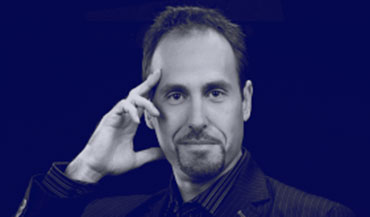 In January I’ll be flying to Doha, Qatar to perform for some of the top tennis players in the world at the Qatar ExxonMobil Open Tennis Tournament. I’ll be in front of an international audience, in a country whose culture is very different from my own. Since my shows rely so much on language, I’m often asked how difficult it is to do shows for audiences whose primary language is not English. My answer is that it does present challenges, but these are easily overcome with a little sensitivity to the nonverbal side of communication.
In January I’ll be flying to Doha, Qatar to perform for some of the top tennis players in the world at the Qatar ExxonMobil Open Tennis Tournament. I’ll be in front of an international audience, in a country whose culture is very different from my own. Since my shows rely so much on language, I’m often asked how difficult it is to do shows for audiences whose primary language is not English. My answer is that it does present challenges, but these are easily overcome with a little sensitivity to the nonverbal side of communication.
Here are a few simple steps to take whenever you’re presenting to people from different cultures.
First, learn which nonverbal behaviors are taboo for your audience. Many orthodox religious groups, for example, have rules about touching members of the opposite sex. In Arab cultures it’s considered offensive to show the bottom of your feet. Eye contact and physical distance norms in particular can vary enormously from culture to culture. Violating those norms can and will make the people you meet extremely uncomfortable.
Where can you find this information? The first and best source is from people who’ve been to where you’re traveling. After that, most travel guidebooks have chapters on local customs. Wikipedia is also an overlooked source.
One fantastic source is a book that you will want to buy. If you travel or do any business internationally, you really can’t get along without it. It’s called, “Gestures, The Do’s and Taboos of Body Language Around the World,” by Robert Axtell.
Second, learn and practice the greeting rituals of the culture you’ll be presenting to. In the USA we greet by shaking hands, but that is hardly universal. In various parts of Asia specialized kinds of bowing are customary. In other places, hugs and embraces are the norm. Practicing these rituals on a patient friend before you travel is important. While perfect fluency in the greeting ritual is not expected, the more comfortable you feel the better your first impression will be.
Third, slow down your speaking tempo, and allow your body to speak for you. Luckily for us in the United States, English is the language of international business, so it’s very likely that many of the people you meet will be fluent in it. However, there are varying degrees of fluency, and even those who are fluent in English may not be used to your accent. But think for a moment about those people you’ve met who seem to “speak with their hands.” Even when you can’t understand every word they say, you can usually get the gist of it. If you use broader, more animated hand gestures, many times your meaning will be clearer to your audience.
Finally, put greater emphasis on getting a baseline for people’s behavior so that you can more easily tell when they react negatively to something you do. I always maintain that the main reason we have a hard time reading each other is that we seldom pay attention to begin with. But it’s easy to tell when you’ve made a mistake with your nonverbal behavior when you suddenly see the other person flinch or tense up. At that point, it’s perfectly fine to apologize for your lack of cultural fluency. Most of the time you will be given the benefit of the doubt.
Performing and presenting for different cultures is very much like doing business with people of different cultures. While you have to adapt yourself to the cultural norms of your new environment, and you must try your best to conform to their communication styles, it’s good to remember that nobody expects perfection from you. What matters most is that you show respect and awareness of your audience’s expectations. A little humility goes a long way.


No comments yet.